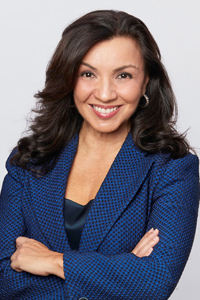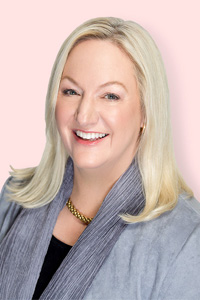- Election Resources
- Member Submitted
Post by Page member Bob Feldman, originally appearing on The Dialogue Project at Duke.
The Civility Call provides a vital forum for senior HR and communications leaders to share best practices on managing workplace tensions during polarized times. Convened in partnership with SHRM and the Page Society, these monthly discussions provide expert insights and best practices from participants organizations. Each month, executives engage in candid dialogue after expert-led discussions on pressing topics like navigating political discourse, customer relationships across divides, and supporting employee wellbeing. This open sharing of strategies and experiences is critical, as businesses face escalating civility risks that can disrupt operations and damage reputations amid the intensifying 2024 election cycle.
As the 2024 U.S. presidential election approaches, business leaders are grappling with how to navigate potential tensions in the workplace. On the recent Civility Call hosted by Duke University’s Dialogue Project in collaboration with SHRM and the Page Society, senior executives shared strategies for promoting civility and inclusivity while preparing for various election scenarios.
 AnnaMaria DeSalva AnnaMaria DeSalva |  Kristin Major |  Maril MacDonald |
The call, moderated by AnnaMaria DeSalva, Global Chairman of Burson, featured insights from Kristin Major, EVP & Chief People Officer at Hewlett Packard Enterprise (HPE), and Maril MacDonald, CEO of Gagen MacDonald. Participants overwhelmingly expressed concern about election results being contested and spilling over into workplace disruption.
A key theme that emerged was the importance of organizational culture and leadership in setting the right tone. MacDonald emphasized the need to reinforce company values and help employees develop better listening skills. “One of the problems we’re having in many of these conversations is that people listen to rebut the other person. They don’t really listen to understand,” she noted.
Several participants shared approaches their companies have taken. One participant with a major retail company described proactively distributing guidance to employees on navigating divisive discourse and intense situations in the workplace. Their focus is on “business first” while ensuring a respectful, safe work environment.
Major highlighted HPE’s emphasis on mental health support, acknowledging the broader context of stress employees face. “We’ve done a soft acknowledgement that it’s a stressful time…You can tie it to a lot of things. It’s the political season. And, obviously, we’ve had a lot of climate issues and weather complications,” she explained.
A recurring challenge discussed was balancing freedom of expression with maintaining a neutral, professional environment. Approaches varied based on industry and company culture. Some, like one participant’s financial services firm, have implemented strict policies banning political signage or clothing to avoid client perceptions of company bias.
Others allow political expression within certain boundaries. As one participant noted, “We’ve told our employees they can wear things to support their political candidate. However, it can’t be anything that shames or makes a comment about anything that goes against our principles.”
Several participants noted the trend in higher education towards institutional neutrality on political and social issues. One senior college administrator observed this shift, remarking, “When you see several, very highly publicized college presidents being let go after social issue controversies, I think the universities are saying, you know what, it’s just not our place.”
While scenario planning was seen as valuable, participants acknowledged its limitations. As MacDonald put it, “We know that every scenario we come up with, the result will be something different than that.” However, the process helps expose assumptions and clarify organizational risk appetite.
Major stressed the importance of involving top leadership: “I do think you have to go all the way to the top. And sometimes that is the CEO or in a public company, it’s your board too, to make sure that everybody is okay. You don’t want anybody to be surprised if you take some sort of action.”
Bob Feldman, founder of the Dialogue Project, encouraged leaders to use the relative calm before election day to have preliminary conversations. “Nobody’s saying make a decision a week prior and that’s your absolute plan, but I there is a bit of a luxury in the calm before the storm to at least think about this, have conversations, and start to get a read of the room.”
As the election approaches, business leaders are walking a tightrope between preparedness and flexibility. While specific scenarios may be hard to predict, the call underscored the value of reinforcing organizational values, improving communication skills, and engaging leadership in advance discussions.
DeSalva announced upcoming Burson research examining the potential workplace impact of the election, including how employees are affected by political conflict and organizational preparedness for potential disruption. This data, expected within two weeks, aims to provide further guidance for leaders navigating these complex issues.
The Dialogue Project plans to continue this critical conversation at its next session on October 21, just two weeks before election day. As tensions rise and the stakes grow higher, these ongoing discussions offer a valuable forum for business leaders to share strategies and support one another in fostering civil, productive workplaces during challenging times.
By focusing on core values, open communication, and proactive planning, organizations can work to mitigate potential conflicts while still respecting the diverse perspectives of their workforce. As one participant noted, the goal is to “lead with kindness and lead with an open mind” – a worthy aspiration for any organization, especially in turbulent times.